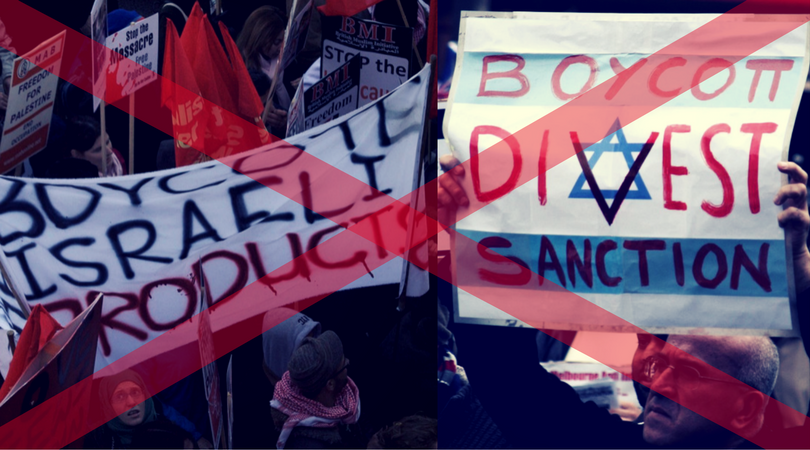(Originally published on Israel Hayom)
Israel always plays nice. For decades, we have been allowing those who demonize and delegitimize Israel to cross our borders and do their dirty work against us on our own soil.
The Palestinian village of Bil’in has become one very real symbol of this kind of “activist tourism,” where anti-Israel foreign activists gather to provoke fights with the Israel Defense Forces in order to gain propaganda footage for the international media.
The reasoning behind Israel’s welcoming policy is that we are a democracy, and we will allow even those who wish us nothing but harm to benefit from our democratic policies. But the real reason is more likely a fear of the international backlash that denying entry to Israel-haters would elicit. Whatever the case may be, the policy has always been a big mistake. As a sovereign nation, Israel should be free to turn anyone it wishes away at the border.
However, the policy finally appears to have been put to rest, at least as far as the boycott, divestment, and sanctions movement is concerned. On Sunday, Israel’s Interior and Public Security ministers declared that they planned to establish a taskforce aimed at expelling BDS supporters and preventing their entry into Israel. According to the press release, dozens of organizations inside Israel are actively collecting information to promote boycotts and international isolation. The new taskforce will be responsible for identifying such efforts and combating them.
Much like the NGO law, which is compelling NGOs to divulge any foreign funding, this effort is likely to outrage the usual suspects in the international media and NGO community. Israel’s answer to this should be a polite “mind your own business.” Israel owes no one any explanations for defending itself against those who wish to destroy it. As Public Security Minister Gilad Erdan said: “We must not allow boycott activists to enter Israel. This is a necessary step given the maliciousness of these delegitimizing activists who work to spread lies and to distort the reality of our region.”
This is a logical and natural move, and it should have been implemented as soon as the BDS movement surfaced. We have bent over backward so far to accommodate the so-called international community and its “concerns” that frankly our backs are about to break.
We should also expect an outcry from the European Union and several of its individual member states. Many of the organizations that promote BDS are sponsored to a lesser or greater degree by the EU, one or more of its member states (particularly Germany and the Scandinavian countries), or both, bringing into serious question whether these organizations are truly non-governmental in the first place.
It will doubtless be embarrassing for the EU to see its activists expelled and returned home. And rest assured: Those who will scream the loudest will be those who wished most fervently for the destruction of Israel. Thus, the new policy is likely to have the welcome side effect of outing those European nations that have truly been working against us by funding organizations that are deeply hostile toward Israel.
The presence of foreign, hostile activists operating on Israeli soil collecting information to use against us in the international arena is not only unique to Israel (show me one other country where such operations are systematically put into place with substantial financial backing from foreign governments), but also an embarrassing disgrace for these foreign, mainly European, governments, that are betraying their obligations under international law to engage with Israel only through diplomatic and legal channels.
Israel must demand a clear answer as to why these supposedly friendly nations support anti-Israel efforts. Is it customary for countries that cooperate and enjoy full diplomatic relations to engage in hostile activities against each other behind each other’s backs? The question is simple and has an even simpler answer.


